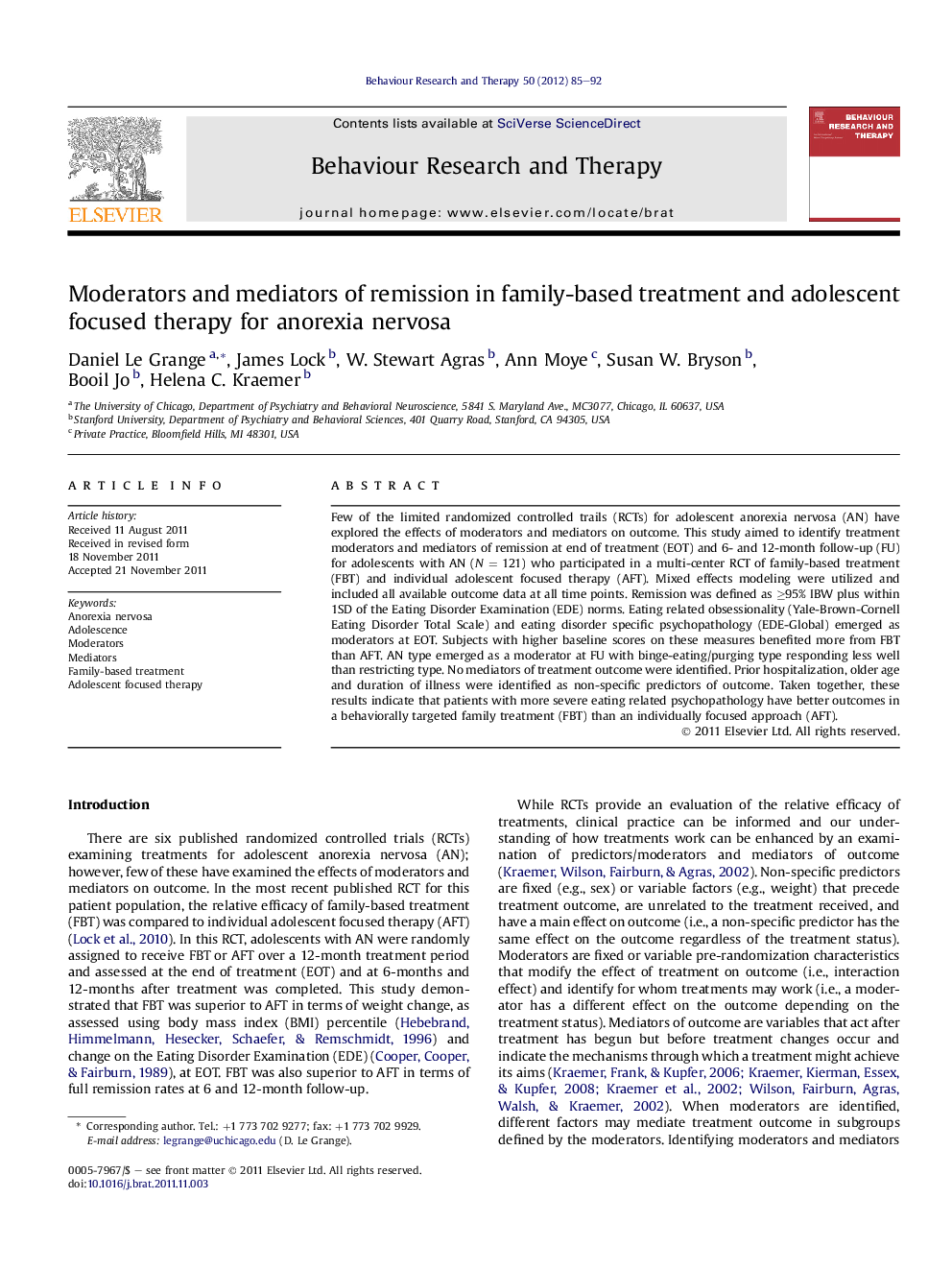| Article ID | Journal | Published Year | Pages | File Type |
|---|---|---|---|---|
| 901973 | Behaviour Research and Therapy | 2012 | 8 Pages |
Few of the limited randomized controlled trails (RCTs) for adolescent anorexia nervosa (AN) have explored the effects of moderators and mediators on outcome. This study aimed to identify treatment moderators and mediators of remission at end of treatment (EOT) and 6- and 12-month follow-up (FU) for adolescents with AN (N = 121) who participated in a multi-center RCT of family-based treatment (FBT) and individual adolescent focused therapy (AFT). Mixed effects modeling were utilized and included all available outcome data at all time points. Remission was defined as ≥95% IBW plus within 1SD of the Eating Disorder Examination (EDE) norms. Eating related obsessionality (Yale-Brown-Cornell Eating Disorder Total Scale) and eating disorder specific psychopathology (EDE-Global) emerged as moderators at EOT. Subjects with higher baseline scores on these measures benefited more from FBT than AFT. AN type emerged as a moderator at FU with binge-eating/purging type responding less well than restricting type. No mediators of treatment outcome were identified. Prior hospitalization, older age and duration of illness were identified as non-specific predictors of outcome. Taken together, these results indicate that patients with more severe eating related psychopathology have better outcomes in a behaviorally targeted family treatment (FBT) than an individually focused approach (AFT).
► Eating related obsessionality and eating disorder specific psychopathology are moderators of treatment outcome. ► FBT is indicated when levels of eating psychopathology are high, while FBT or AFT seem useful when levels are low. ► Scores from the EDE-Global or YBC-ED can be utilized to identify patients in high vs. low eating psychopathology groups.
